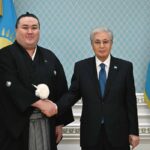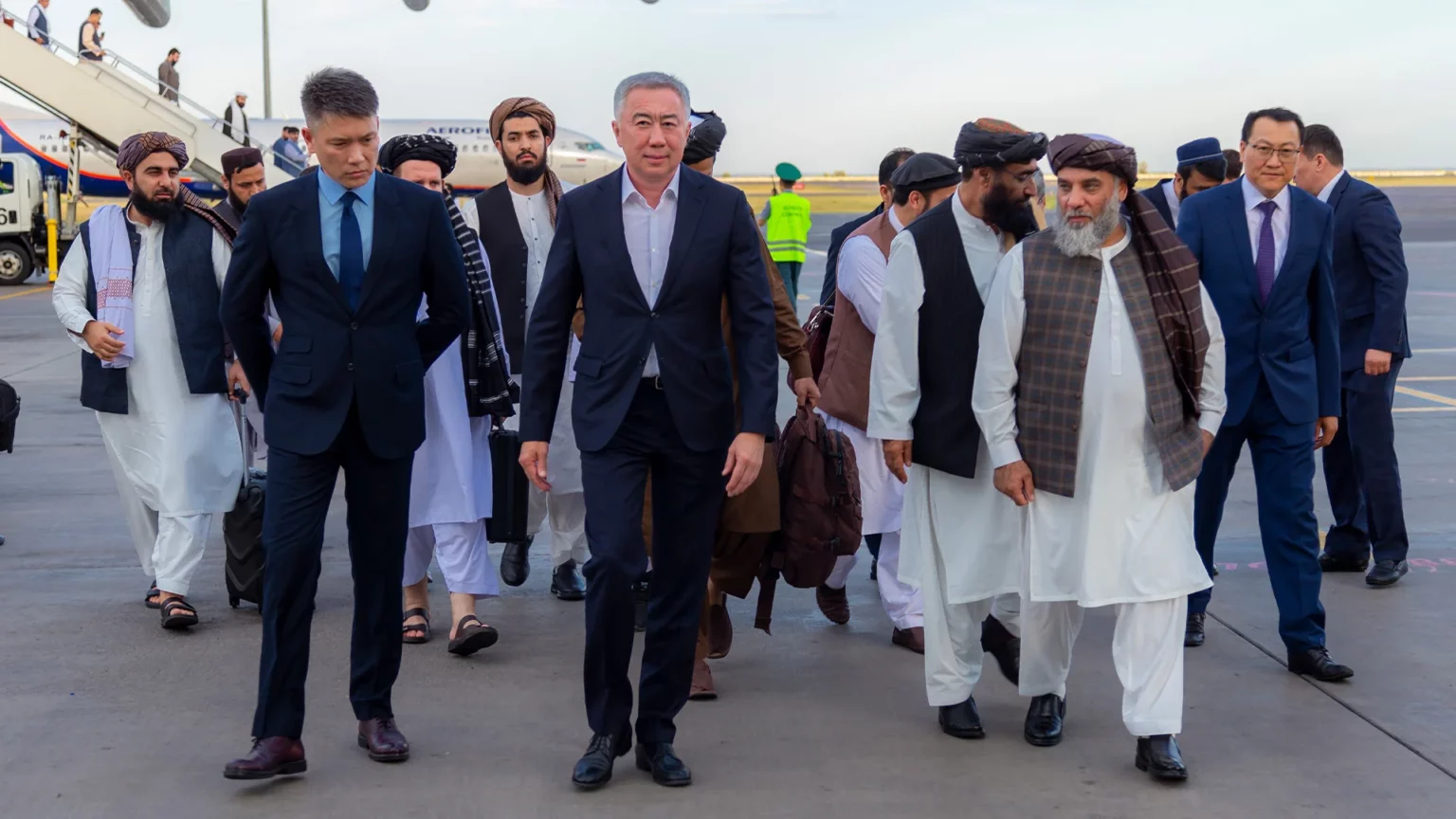Just on the eve of the New Year, Kazakhstan removed the Taliban from the list of terrorist organizations. The Kazakh Ministry of Foreign Affairs stated that this decision resulted from a routine review of the list and adherence to the recommendations of the United Nations Security Council.
In principle, such a decision was quite logical, considering that the Taliban has been in power in Afghanistan for almost two and a half years. It is evident that engagement with them is necessary, as many countries are currently doing. Remarkably, China appointed a new ambassador to Afghanistan earlier this year. While other nations maintaining a presence in Afghanistan have refrained from taking such a step, China notably stands out in its support for relations with the Taliban.
For instance, on May 6, 2023, a meeting in Islamabad brought together the foreign ministers of China, Pakistan, and Afghanistan – Qin Gan, Bilawal Bhutto Zardari, and Amir Khan Muttaqi, respectively. They reached an agreement to include Afghanistan in the China-Pakistan Economic Corridor, a substantial $60 billion project. Among its objectives are the development of transportation infrastructure and addressing Pakistan’s energy deficit.
Incidentally, both of these tasks could be accomplished through the construction of the long-awaited Turkmenistan-Afghanistan-Pakistan-India (TAPI) gas pipeline. Furthermore, during the meeting, discussions revolved around the potential integration of Afghanistan into China’s ambitious Belt and Road Initiative, actively promoted by Beijing since 2014.
While the TAPI project has faced challenges since its inception in 1994, linking it to China could catalyze its commencement. The central issue now revolves around financing rather than security. No bank would extend credit without international recognition of the Taliban government. In the past, the American company Unocal, during the Taliban’s initial emergence in Afghanistan in 1994, struggled to secure funds for the TAPI project, primarily due to unresolved security concerns amid the ongoing conflict and a lack of financial support from banks.
Presently, with the Taliban in power, the security situation has notably improved, but the financial question remains open. Therefore, connecting Afghanistan to the China-Pakistan Economic Corridor could be pivotal for realizing the TAPI project. Funding for TAPI’s construction might be allocated within this larger initiative, allowing circumvention of restrictions tied to the non-recognition of the Taliban government and sanctions against its financial system. Pakistan, for instance, could begin implementing the project using Chinese funds as if it were constructing it on its own territory, and all construction expenses would be settled within Pakistan without physically crossing Afghanistan’s borders.
Incidentally, a notable example in this context is the construction project of the Kush-tepa canal from the Amu Darya River. The Taliban completed it in record time, allowing Afghanistan to now divert up to 25% of water from the Amu Darya. This poses a significant challenge for Uzbekistan and Turkmenistan, both facing water scarcity issues in the region. Moreover, the Afghans did not insulate the canal bed, leading to substantial water losses, especially considering the canal is built in a desert.
The most intriguing aspect of this story, however, is the question of where they sourced the funds. Given that the Taliban essentially lacks financial resources, external funding plummeted after the departure of the international coalition. While primarily coming from Gulf countries, external financing is further complicated by Afghanistan’s financial sector being under sanctions. The construction cost of the canal is estimated to be around $680 million, a substantial amount impossible to gather domestically. Additionally, equipment and specialists are required, and their expenses need to be covered.
In any case, the construction of Kush-tepa is likely funded externally. If so, it might follow a model similar to the one described earlier for the China-Pakistan Economic Corridor. In such a scenario, Kush-tepa serves as a kind of trial run, and the next project could very well be the TAPI pipeline.
Why does this matter? The situation around Afghanistan has clearly reached an impasse. The Taliban faces non-recognition due to its policies towards women and refusal to consider an inclusive government. Simultaneously, engagement with the Taliban is necessary to steer it towards state-building and mitigate the risk of radicalization. This situation is a cause for concern for Afghanistan’s neighbors, including China.
Furthermore, Europe and the U.S. aim to avert a humanitarian catastrophe in Afghanistan, not only for humanitarian reasons but also to prevent a surge in refugees in the region. Afghanistan has a population of nearly 40 million, with over half teetering on the brink of a humanitarian crisis. If the situation worsens, either due to food shortages or internal political tensions, a significant influx of refugees is highly likely. For instance, if 5 million Afghan refugees end up in Iran, 2 million might subsequently enter Turkey, with 1 million attempting to enter Europe.
Hence, various countries, often informally, must support relative stability in Afghanistan. In July 2023, a meeting in Doha, Qatar, brought together U.S. Special Representative for Afghanistan Thomas West, Women’s Rights Special Envoy Rina Amiri, and Afghanistan’s Foreign Minister Amir Khan Muttaqi. Interestingly, the American representatives flew to Qatar from Kazakhstan, where they had consultations with representatives of Central Asian countries. Among other topics, the meeting discussed funding for a special fund, where Americans would allocate money from the frozen assets of Afghanistan’s central bank for humanitarian needs. Clearly, in such a scenario, the Taliban must reciprocate. All of this represents just the visible part of the iceberg in a complex system of, albeit sometimes reluctant and not always convenient, interactions with the Taliban government.
In this context, one can highlight the example of Kazakhstan. Over the past year, our country has doubled its exports to Afghanistan compared to the times of the previous government. This amounts to shipments of nearly $1 billion compared to $500 million during Ashraf Ghani’s administration. A Kazakhstan-Afghanistan business forum was held in July of this year, discussing the prospect of increasing mutual trade. Kazakhstan hosted diplomats from the Taliban government, although official recognition was withheld.
Naturally, questions arise about how Afghanistan finances such a substantial volume of imports from Kazakhstan. Another crucial question is how payments are conducted when Afghan banks are under sanctions. Of course, there is always the well-known hawala system, a traditional informal payment network among traders worldwide. However, it cannot cover such volumes, especially when official export transactions are carried out in Kazakhstan. It is unlikely that our suppliers of grain, flour, vegetable oil, and fuel would deliver goods to Afghanistan without money and proper documentation.
Therefore, it can be assumed that financing for all transactions passes through various international organizations. It’s worth recalling that in October 2021, shortly after the Taliban came to power, the EU allocated €1 billion as humanitarian aid to Afghanistan and neighboring countries assisting Afghan refugees. According to Ursula von der Leyen, President of the European Commission, this was done «to avoid a humanitarian collapse.» It’s worth noting that banks were already not operational at that time.
It can be speculated that since then, Western organizations have somehow been paying for critical goods in Kazakhstan and other countries for Afghanistan. The formulation used by von der Leyen quite allows for this interpretation. Western countries and international organizations cannot act otherwise, given the Taliban’s policies toward women and its refusal to consider an inclusive government. However, they cannot completely ignore the problems of the Afghan population either, as they would not want millions of refugees appearing at the borders of Europe and beyond.
In this case, another important question arises: what happens to the goods entering Afghanistan from Kazakhstan, assuming the above assumption is accepted? Obviously, the Afghan government, at least partially, manages these goods. It addresses humanitarian issues, but some items may also be sold on the market.
All participants in the process clearly prefer to avoid publicity on such delicate matters. It’s worth noting that despite disagreements with the Taliban’s policies, it effectively controls the situation in Afghanistan. We see that no external support is given to anti-Taliban opposition, as was the case in the 1990s. The constant war in the country has wearied everyone. Therefore, if there is a force capable of assuming responsibility and can be negotiated with, why not? There is no other viable option anyway.
It is noteworthy that this year Iran became a member of the Shanghai Cooperation Organization (SCO). Now, members of this organization surround Afghanistan from all sides. Consequently, the influence of the SCO, and therefore China, on the situation in Afghanistan is increasing. Therefore, China is intensifying its economic cooperation with Afghanistan because the timing is crucial for the country. Almost 2.5 years have passed since the Taliban came to power, and projects like the TAPI pipeline are yet to be realized. Meanwhile, Afghanistan urgently needs revenue for its budget.
Against this backdrop, Kazakhstan’s decision to remove the Taliban from the list of terrorist organizations aligns well with current trends. The United Nations Security Council no longer considers the Taliban a terrorist organization, as referenced by the Kazakh Ministry of Foreign Affairs. However, just like in other countries, no detailed explanations were provided to the Kazakh public. The Ministry of Foreign Affairs issued a brief statement with minimal information and without any accompanying public relations efforts.
Similar practices are followed in China and Western countries. Explaining the logic behind many events is not always straightforward to the public, often leaving them surprised. Nevertheless, some level of explanation is still warranted. In Kazakhstan, the decision was communicated on the eve of the New Year when people are likely preoccupied with other matters. The event will subsequently blend into the flow of other news. However, Afghanistan and the Taliban seem to remain with us for the foreseeable future.









